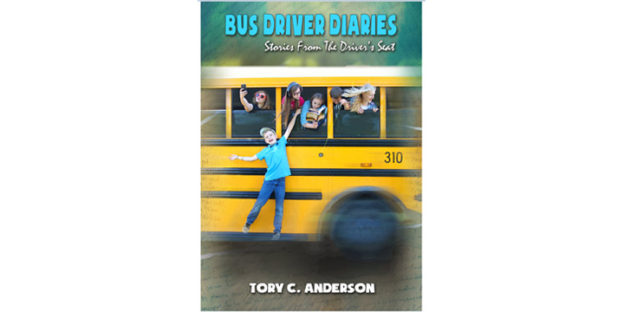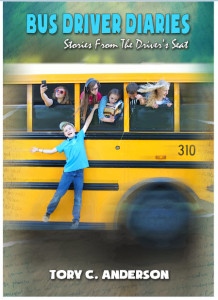Driving a school bus is a trick. It requires navigating a rigid, forty foot behemoth on congested freeways, icy country roads, or, worse yet, on school grounds where new teen drivers are swarming out of the parking lot and pedestrians are crossing the bus lane in droves. It’s not for the faint of heart. The other half of bus driving happens inside the bus. While doing all the aforementioned navigating we are supposed keep order among sixty youth exploding with energy. How is this to be done? A line from an old Boy Scout skit has helped me: Patience, Jackass. Patience.
After eight years I was just assigned a new route. Changing routes after so many years is hard. It doesn’t help when the previous driver of your new route tells you how difficult your new route is. It’s a middle school route, after all. Half the seats have three riders; the rest have two. Sixty-four pubescent middle schoolers. Who would accept a route like that?
The previous driver told me that I would need to maintain control. “Once you lose control, it’s hard to get it back,” she said. I’ve driven long enough to already know that.
The first day went well enough. At least I thought it did. That evening, I got a call from an angry mother. In eight years, that is the first angry mother call I have gotten. She told me her kids had sat next to two boys who were “F”ing and “B” ing all the way home. She didn’t think her kids and others should have to listen to that kind of language on the bus. I agreed. She named the two boys. I went through worse case scenarios all night long of how I was going to handle it. I’d talk to the two boys. They would rebel. I’d take it to the principal. He’d slap hands and let it go. I’d have to quit being a bus driver.
First, I called the previous bus driver to find out who these two kids were. When they got on the next morning I had them sit up front with me. I had pictured in my mind big eighth graders with the mark of Satan on their foreheads. Turns out they were little fifth graders with pleasant faces. I told them why they were sitting next to me. They both come from a cowboy heritage so I gave them a cowboy analogy. “Have you ever seen a man in a speedo wearing cowboy boots?” I asked. They grimaced at the image and said they hadn’t. “That’s what foul language is like to those who don’t want to hear it. It’s really bad taste.” Surprisingly they were humble and respectful enough to me.
Since I have the fifth grade up front I assigned these boys seats next to me. We’re getting along just fine. The language has stopped. I let them sing cowboy songs to music on their phone. They turn it off voluntarily as I approach each stop. They are happy. I am happy. The anxiety of a big fight and quitting being a bus driver wasn’t necessary.
On the second day an eighth grade girl in the back was continually leaning out in the aisle to speak to someone behind her. I got after her on the intercom. As she got off the bus I reminded her again to stay out of the aisle. She gave me a dirty look. Then she walked in front of the bus without waiting for me to point her across. I said a few words out the window to her. She gave me a dirtier look. It was clear to me—she was going to be trouble.
I thought all night about how to handle the situation. I wanted to be in control from the beginning. I thought I might ask her to sit up front the next morning so we could talk. I had a feeling this would not set well with her. It would be humiliating; the fifth graders sit up front.
When she got on the next morning I was distracted. By the time I saw her it was too late to discreetly ask her to sit up front. Instead I called out “Good morning,” as she passed. The look of distrust and anger left her face, replaced by surprise. She surprised me when said, “’Morning” back to me. That seemed like progress, so I let it go at that.
That afternoon, I checked my mirror. She leaned into the aisle a couple of times, but not for long. I let it go. When she got off the bus I said, “Have a good one.” She smiled and nodded. Since then, by eighth grade standards, she’s been downright friendly, and well enough behaved. The other day she informed me that I can call her by the shortened version of her name. I accepted.
I’m learning that you can’t be afraid and be a very good bus driver. Fear drives bad behavior in students and bus drivers. There are very real challenges that have to be dealt with in the life of a bus driver, but “Patience, Jackass. Patience,” has served me well in finding solutions to these challenges.
__________________________________________________________________________________
These books by Tory Anderson are now available on Amazon in Kindle and paperback format:






